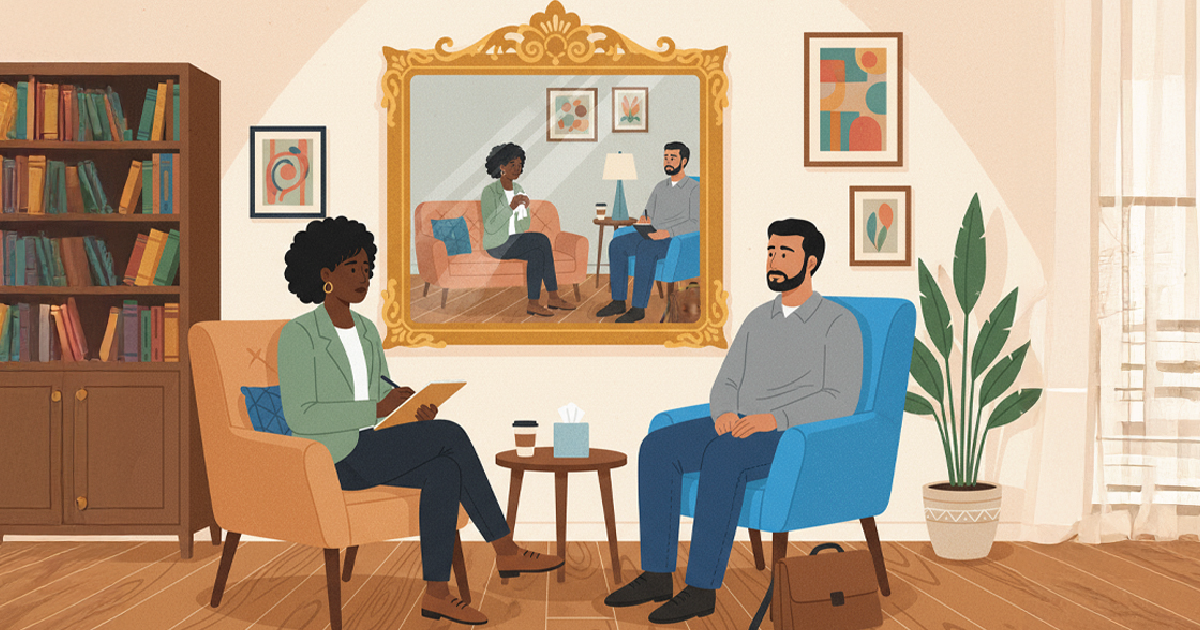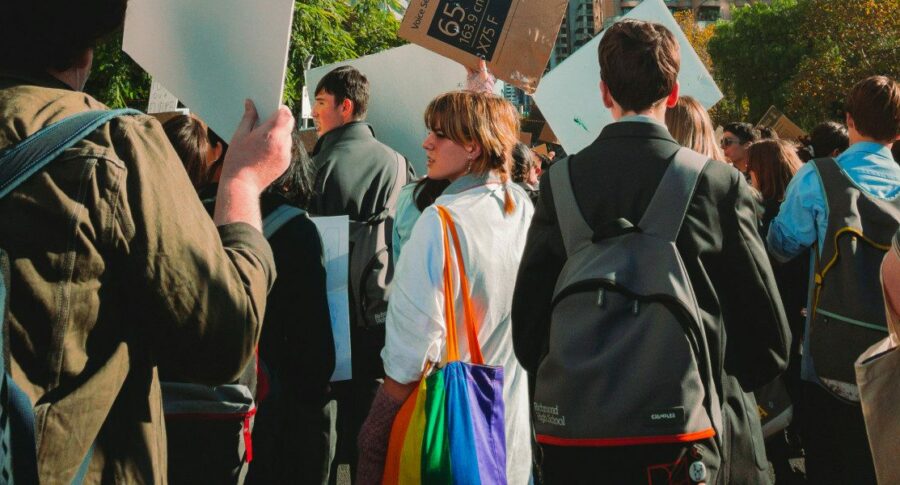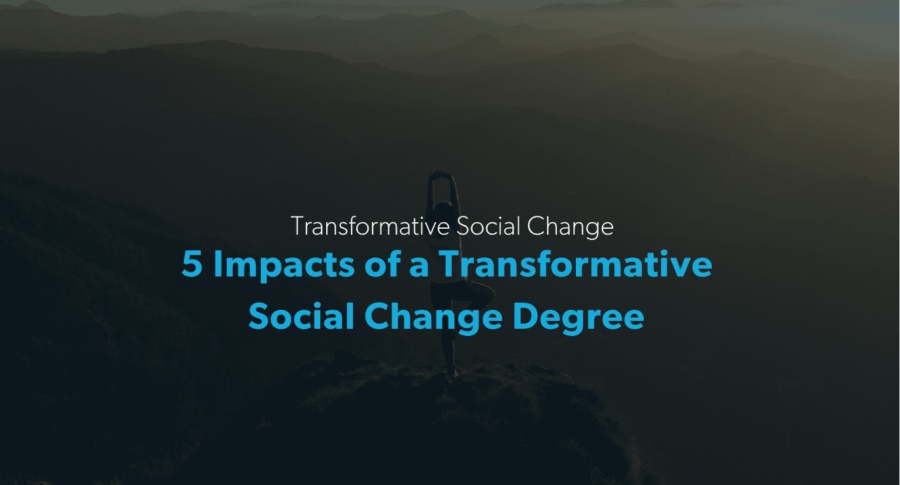Marie Kondo started a revolution nearly a decade ago with a simple concept: Clean out your house. Get rid of things. If it doesn’t spark joy, throw it out. Meanwhile, experts believe that one in 20 people in the U.S. could be clinically diagnosable hoarders. The average American home contains 300,000 different items. Seemingly from birth, as Americans, we’re taught that we need things. All of them. For most of the 20th century, this sort of overconsumption was largely lauded—there were no ramifications, at least none that we could see.

And then we noticed the world was on fire—or melting, or maybe both. Simultaneously.
On April 22, 2020, we celebrated the 50th anniversary of Earth Day and week six of our pandemic-induced lockdown. Our time inside presented an opportunity to consider the ways that overconsumption and care for our Earth go hand in hand. According to NASA satellite readings, levels of nitrogen dioxide were down by as much as 30% in China in January. Meanwhile, with fewer cars on the road, Los Angeles’ smog lifted, and according to Environmental Protection Agency data, the city experienced its best air quality in almost 40 years. Across the world, the famed Venice canals sparkled, and in Delhi, a city where people wore masks because of car pollution, residents saw actual stars. Pictures abounded of clear skies and wild animals inhabiting green spaces again—making it difficult to deny that our everyday actions were affecting the environment.

Our need to collect things stems back to how we evolved. In our fight to survive, we learned that collecting more food, more blankets, and more shelter made us more likely to stay alive and more likely to attract a partner. This behavior to consume had no limits.
The evolutionary need to keep consuming has turned into overconsumption. People buy more than what they need, and because the world is not an unlimited resource, the effects are far reaching.
Economist Thorstein Veblen explored the tendency to overconsume in 1899, applying it to class distinctions. He wrote, “The motive is emulation—the stimulus of an invidious comparison, which prompts us to outdo those with whom we are in the habit of classing ourselves.” Essentially, we continue to want more so that we can show that we can afford more.
The phrase “Keeping up with the Joneses” comes to mind.
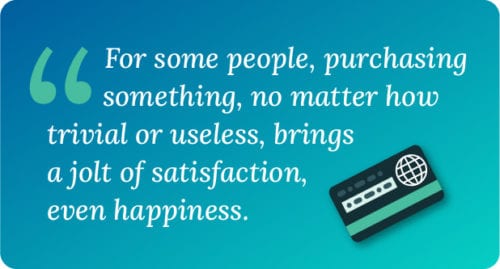
Linda Riebel, Ph.D., ecopsychologist and Saybrook alumna and faculty member, equates this to an addiction. “For some people, purchasing something, no matter how trivial or useless, brings a jolt of satisfaction, even happiness. For others, the act of shopping is the reward, as they spend whole days at the mall—or used to before the pandemic. Addiction seems to be a plausible analog, in that each brief moment of satisfaction fades and the person feels a need for a new one.”
Our capitalist economy thrives on this need for more with advertisers and products galore. From our hunter-gatherer roots to our new life spent indoors, “things” are often tied to security—whether rightly so or not. We feel secure if we have things, and society and advertisers play on that heartily. After 9/11, President George W. Bush told us to support our country by buying things. Economy above all.
“Our economy is predicated on the notion that ‘growth is good,’ even though numerous people have pointed out that unrestricted growth is also the hallmark of cancer. Wall Street analysts predict how well a company ‘should’ do, and companies desperately try to persuade people to buy their products and services. Enter advertising,” Dr. Riebel continues.
“This is the industry—with the regrettable complicity of psychological knowledge—that batters us with phone calls, images, intrusions into our emails, tracking and selling our movements. You know the drill,” she says. “Even the urge to use less has been co-opted, such as the magazine Real Simple, stuffed with advertisements for things. Today’s online version touts cosmetics: ‘Someone Buys This Foundation Every 60 Seconds (and It’s on Sale During Amazon Prime Day!).’”
But the Earth simply cannot keep up. According to figures by the Global Footprint Network, an independent think tank, the first time that human consumption surpassed the planet’s capability to produce was December 29, 1970. This date moves forward each year, with this year’s “Overshoot Day” falling on August 22, 2020. It would currently take 1.6 planet Earths to support our demands on the ecosystem.

When climate change was initially discussed in the late 20th century, we were told that Antarctica was melting, the polar bears had nowhere to live, and that our aerosol cans were making a hole in the ozone layer—but all of that was far away from our every day. We could turn the channel, ignore the facts, and move on with our lives. Now with dire climate disasters happening more and more frequently, it’s becoming more difficult to ignore—yet still we consume.
“Until the early 20th century, consume literally meant ‘to waste.’ So at the heart of consumerism is a willingness to not only waste food and things, but to waste people,” says Shuli Goodman, Ph.D., alumna and founder and executive director of Linux Foundation Energy.
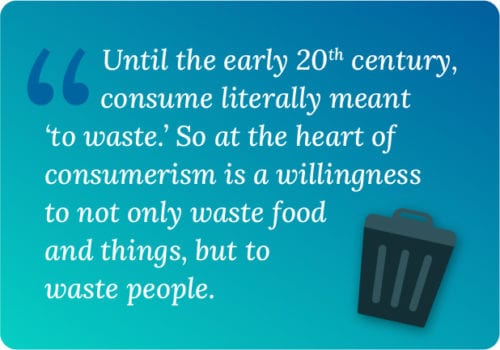
“The mind is always going to want more because that is what the mind does. The mind always wants to grasp more, but what is unique about the United States is that we’ve been able to produce more and more because of our natural resources,” Dr. Goodman says. “But a lot of people don’t recognize that at the heart of the American experience is Manifest Destiny, which is everywhere we look—Target, Amazon, everywhere. I want, therefore I can have.”
Even with the impressive, unexpected benefits to nature after our imposed lockdown, thanks to ecommerce, consumerism and overconsumption did not miss a beat. According to the Digital Commerce 360 analysis of U.S. Department of Commerce data, figures show that in the first six months of the year, consumers spent $347.26 billion online with U.S. retailers, up 30.1% from for the same period in 2019. Online spending represented 18.6% of total retail sales for the first two quarters of 2020. Another market that is known for single-use products, which is harmful for the environment, is also rising during the pandemic: food delivery. Grubhub reported a 35% increase in active diners—from 20.3 million in 2019 to 27.5 million in 2020.
Dr. Riebel even links overconsumption of the Earth’s resources to eating disorders in her 2001 liminal paper, “Consuming the Earth: Eating Disorders and Ecopsychology.” She writes, “Consumption of the earth’s natural resources exists in its starkest and most literal form in the act of eating. Eating disorders are symbols and manifestations of psychopathology on a grand scale, made more poignant by the fact that they are so difficult to cure.”
Curing the ills we’ve caused Earth may be just as difficult, but it doesn’t mean we mustn’t try. Dr. Goodman works in the energy field, finding ways to move into a renewable, sustainable market to produce and democratize power. She believes that looking through a historical lens, we can begin to understand the damage we’re doing.
“We have lost our historical context: Why we came to this country, what we were looking for, and the degree to which we have succeeded,” she says. “We’ve been soothed into complacency because of our ability to live like kings and queens and go buy, buy, buy. There’s no other way to think about climate change than by thinking about our materials and what we use to create these things to consume.”

A recent headline read that the United Nations “warns that world risks becoming ‘uninhabitable hell’ for millions” if nothing is done. “Consumerism is relatively new and directly related to fossil fuels. If you look at the kind of exponential growth curve of fossil fuels, the GDP, and carbon, they follow exactly the same curve, starting around the 1850s,” Dr. Goodman says.
The climate crisis is a direct reflection of our need for more. According to the UN Office for Disaster Risk Reduction (UNDRR), 7,348 major natural disasters occurred between 2000 and 2019—including earthquakes, tsunamis, and hurricanes—claiming 1.23 million lives, affecting 4.2 billion people, and resulting in $2.97 trillion in global economic losses.
Overconsumption and its effects are everywhere. We can talk about the use of plastic: an average person living in North America or Western Europe consumes 220 pounds of plastic each year, mostly in the form of packaging, compared to one-fifth that level in Asia. Or we can discuss the rising levels of debt—financial company Nerdwallet reports that the average American household is $132,529 in debt. Or about binge drinking (consuming more than four drinks in one sitting) accounting for 90% of the alcohol consumed by those under the age of 21 in the United States.
Overconsumption and its effects
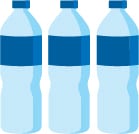
of plastic are consumed each year by an average person living in North America or Western Europe
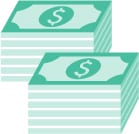
is the amount of debt the average American household has.

of alcohol is consumed through binge drinking by those under 21 in the U.S.
Learning to limit our consumption of anything does not appear to come easily to Americans.
“We consume the Earth to ease our pain. But the success of this strategy is fleeting—the pain comes back, so we do more of the same, demanding more consumption-induced oblivion. Attempts to stop merely reinstate the cycle,” Dr. Riebel writes. “We become ever more disconnected from our bodies, our fellow humans, our fellow creatures, and our self-respect. Humans are not always rational and, as the environmental crisis shows on a ghastly scale, are capable of ignoring even the most elementary factors needed for survival.”
Though it may not have been part of our evolutionary development, the humanistic foundation that Saybrook has relied on for more than 50 years provides a way through this crisis. While a focus on altruism and providing for others cannot provide a cure for the climate crisis, it does provide our only hope of survival.
“If you begin to change systems, to democratize energy and electricity, if you stop pumping the bones of our ancestors into our cars so we can drive to the mall, if you do that, it will have a profound shift on how culture is organized,” Dr. Goodman says. “I trust that if we begin to address this at a structural level, many things will change, and it will begin to cascade its way down. On a day-to-day basis, we vote with our dollars. I think that we have to begin taking responsibility for every single day we vote for something with what we spend our money on.”

If you are interested in learning more about the community and academic programs at Saybrook University, fill out the form below to request more information. You can also apply today through our application portal.
Find Out More
Recent Posts



